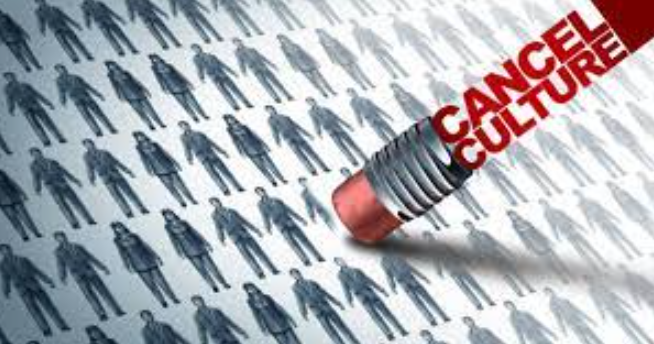Cancel Culture: Generational or media-driven?
Canceling an individual is becoming increasingly popular on social media.
Since the arrival of handheld phones, technology is literally in our faces at all times, and so are its encompassing problems. From worrying about follower counts to obsessing over influencers, the impact of social media is filling the lives of high school students.
The idea of cancel culture, as defined by Merriam-Webster, is the “tendency of engaging in mass canceling as a way of expressing disapproval and exerting social pressure.” This has become increasingly popular amongst politicians and celebrities alike, magnifying what is identified as a wrong opinion to the masses.
Nicholas Schueller, a Contemporary Issues teacher, defined cancel culture as “a backlash because you said something,” but there is also “an aspect of cancel culture that is a brand now.”
Many celebrities have been canceled, but have reaped the rewards of press attention from that controversy.
“Louis C.K. got canceled. He was a comedian… That’s why I think that the idea of it is not what people say it is,” Schueller said.
According to the New York Times, C.K. was accused of sexual misconduct by five women, yet he announced a tour in 2021. The allegations that went viral, causing him to be canceled by the #MeToo movement and other celebrities alike, seemed to get pushed under the rug.
Social media has opened our eyes to more of what is going on in the world, but this widespread communication and lack of social interaction, has its downfalls.
“When I was younger, I used to be able to go out and say something really stupid, for example, but it would be in a limited environment, where there might be two or three people judging me. But that was the impact it had, on two or three people. It wasn’t blown up internationally,” William Woessner, interim school psychologist, said.
This immediate accountability, or lack thereof, is also being distributed to everyone worldwide, including youth. They are the major group consuming media, and limiting it is very difficult. When exposed to this at such an important time for mental growth, it can become toxic and overwhelming.
In reference to a former conflict with Iran, “APUSH kids came into class with all these opinions. I asked them to write down everything they knew about Iran. The list was nothing. How do you have such a strong viewpoint on something you have no context for? We’re so quick to judge,” Schueller said.
Anyone can have access to all the information, or selective information, at their constant disposal.
“It is confirmation bias, and it becomes tribal. You find information that supports your viewpoint and degrades that of others, and that’s what you consume. All you are doing is reinforcing your own belief system and not weighing evidence, which is really dangerous,” Woessner said.
Despite the intrusive nature of social media, generational differences also bring a positive. “[The current] generation has been exposed to so much through social media, and is around a variety of people who aren’t like each other, that this generation is the most accepting,” Schueller said.
This generation, understanding and diverse, holds the same belief. “As decent human beings, we should extend a type of grace where forgiveness is given, but a lesson is learned as well. Every situation is an opportunity to learn and be a better person, who are we to decide if they can have another chance?” Ayanna Bennett, senior, added.

Megan Carr is a senior at Homestead High School. She leads the FIDM Fashion Club and is also a member of the student council. When she is not at school,...





